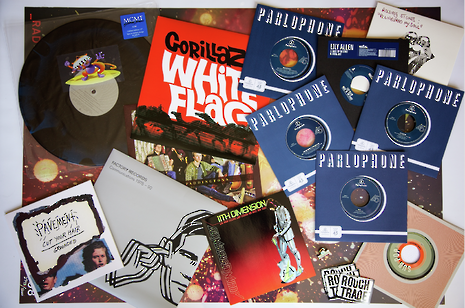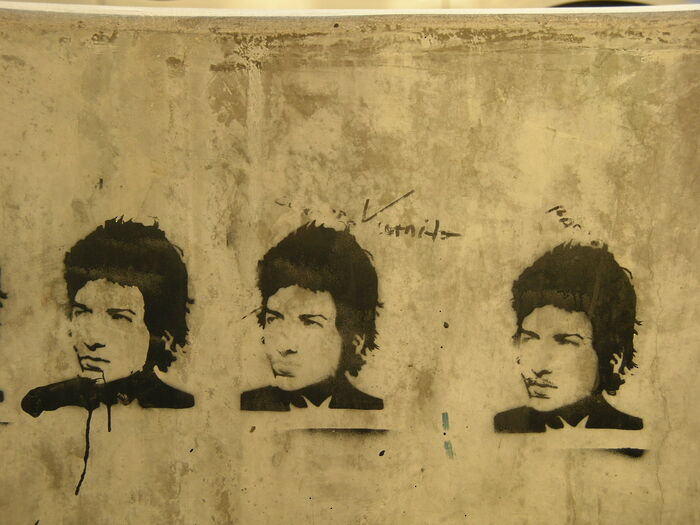Writing bad music is the best preparation for writing good music
Returning to the relationship between music and poetry, William Poulos explores how the nature of each outlet affects the creative process

In his introduction to the selected poems of Ezra Pound, T.S. Eliot wrote that a poet should not expect to consistently write masterpieces. The poet’s accumulation of experience is gradual and invisible, and may find its perfect expression only once every five or ten years, but “if a poet were content to attempt nothing less than his always best, if he insisted on waiting for these unpredictable crystallizations, he would not be ready for them when they came”. Between these rare moments of perfect expression “the poet must be experimenting and trying his technique so that it will be ready, like a well-oiled fire engine, when the moment comes to strain it to its utmost.” In other words, a poet should practice like a musician.
“There isn’t time to wait for inspiration; recording studios are expensive”
Not surprisingly, this approach has proved more productive for composers and musicians than for writers. Eliot wrote those words in 1928, by which time Louis Armstrong had already made most of his famous recordings with his Hot Five and Seven. The recordings, especially the earlier ones, are based largely on improvisation, and sometimes Armstrong’s group recorded three or four tracks in one session. Some are still considered masterpieces of jazz and are among the most exciting sounds ever recorded. It is unlikely that this is the result of inspiration alone. Though it sounds paradoxical, every jazz musician practices improvisation, because they, as Eliot said of Pound, rebel against the tradition of romanticism which insists than an artist must be continuously inspired. There isn’t time to wait for inspiration; recording studios are expensive. Besides, a jazz musician must perform to make a living and give the crowd its money’s worth every night.
You might argue that the comparison between poets and musicians in this respect is unfair because writing and performing are different skills, but composers and songwriters leave poets and novelists looking lazy. Irving Berlin, another one of Eliot’s contemporaries, wrote songs every night and wrote over 2,000 in his lifetime. Some of them are clunkers, but the good songs include some of the best in the tradition, such as White Christmas and Dancing Cheek to Cheek. These gems are the result of years of cutting and polishing, not merely inspiration; writing bad stuff is the necessary preparation for writing good stuff.
Unfortunately, excessive touring and media obligations prevent the songwriter’s progress through writing bad material to writing good material. After The Beatles stopped touring they produced the songs Strawberry Fields Forever and Penny Lane, as well as Sgt. Pepper’s Lonely Hearts Club Band and the White Album, two records with their best and worst work. (Unfortunately, contractual obligations encouraged The Beatles to record everything possible, leaving us with Rocky Raccoon.) Muse’s three great albums – Origin of Symmetry, Absolution, and Black Holes and Revelations – reached their final forms only after dozens of other songs had been recorded and cut. (Some of these are very good; see if you can find Fury, which was cut from Absolution.) Conversely, they wrote only eleven songs for the album The Resistance, all of which were included despite some being less interesting than a piece of lettuce.
Not obliged to give interviews for NME, the responsibilities for composers were mostly musical. Being employed by a court or church, composers could write constantly, experimenting with music and improving the average quality of their work; Mozart died when he was 35, having written over 600 works including symphonies, chamber works, and operas. The worst you can say about any of these pieces is that it’s accomplished; the best reveal pleasures you didn’t know existed.
Despite his advice to aspiring poets, Eliot published comparatively little poetry in his lifetime. (The huge Eliot editions you see in bookshops and libraries are heavy with scholarship, not poems.) He was probably right to do so: unlike a composer, the more a poet writes, the less secure his reputation. For poets, writing too much – like talking too much – tends to impugn genuine achievement; for composers it tends to enhance it. Except for Pachelbel, composers of one-hit-wonders are usually forgotten, but most people know about Louisa May Alcott, who wrote Little Women and little else
 News / Caius mourns its tree-mendous loss23 December 2025
News / Caius mourns its tree-mendous loss23 December 2025 News / Clare Hall spent over £500k opposing busway 24 December 2025
News / Clare Hall spent over £500k opposing busway 24 December 2025 Comment / The ‘class’ of Cambridge24 December 2025
Comment / The ‘class’ of Cambridge24 December 2025 Comment / Yes, I’m brown – but I have more important things to say22 December 2025
Comment / Yes, I’m brown – but I have more important things to say22 December 2025 Interviews / Politics, your own way: Tilly Middlehurst on speaking out21 December 2025
Interviews / Politics, your own way: Tilly Middlehurst on speaking out21 December 2025








